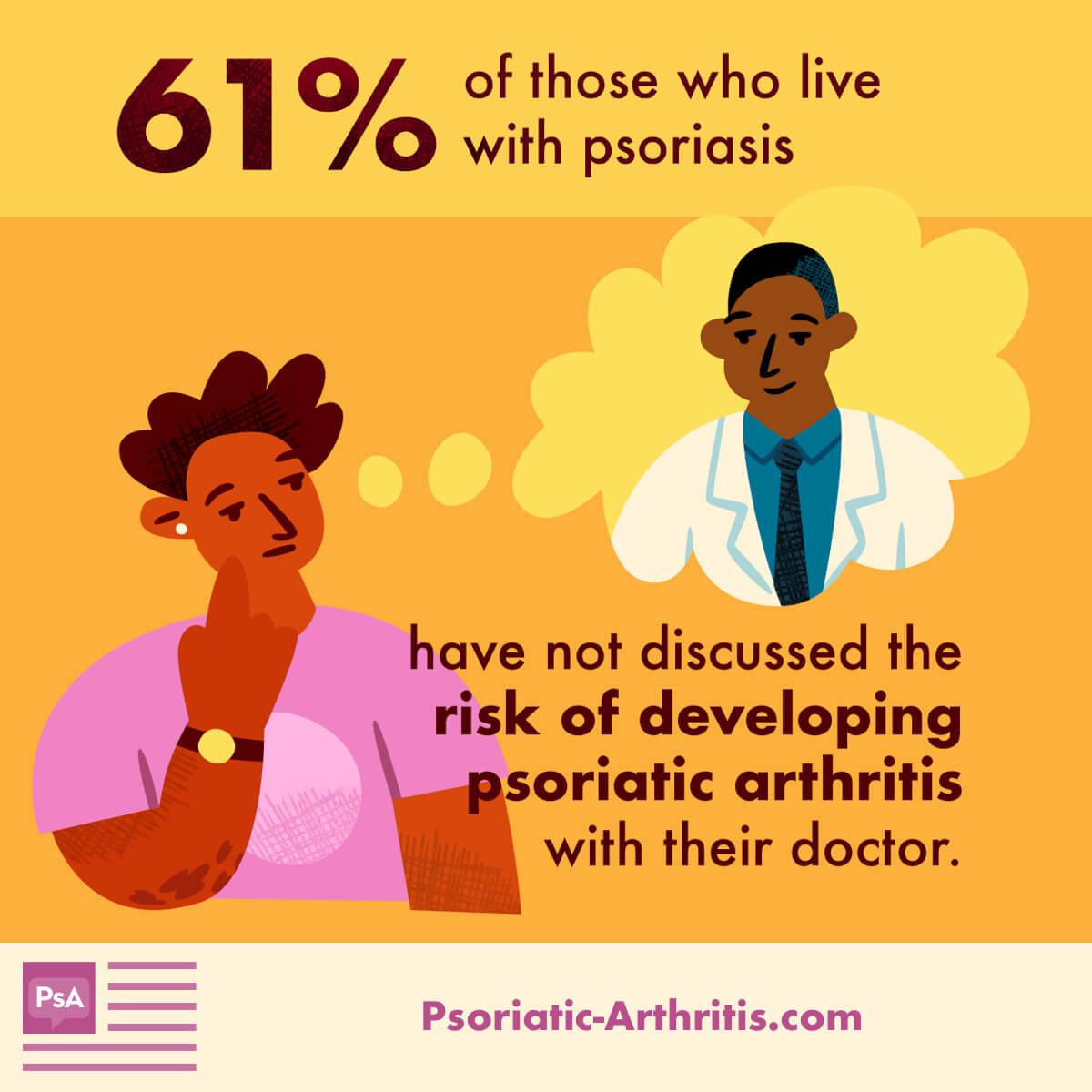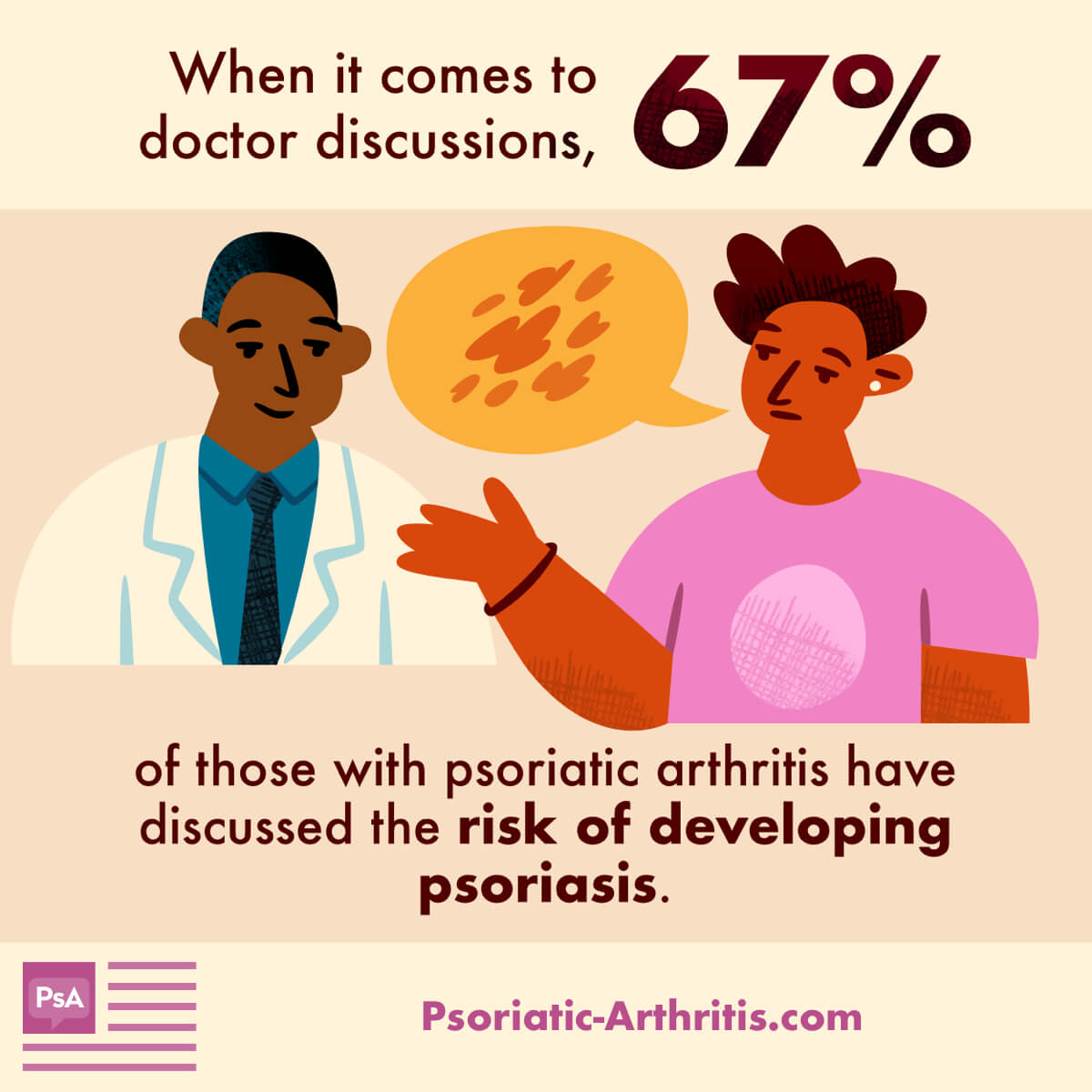The Connections of Psoriatic Disease: Let's Talk Progression
Our community and dedicated community members here at Psoriatic-Arthritis.com and our sister site PlaquePsoriasis.com help us understand the deep and painful connections of psoriatic disease. In addition to engagement within our forums, stories, and comments, we gain valued insight from our annual In America Survey, which surveys real people living with psoriasis and psoriatic arthritis.
We do not take this responsibility lightly. Our top priorities have been to reshare information we have learned back to the community to provide emotional support, important resources, and that right kind of reassuring validation.
Progression can be scary to talk about
Along with social listening and official survey results, we are eager to share some of the connections and disconnections we have found across the psoriatic communities. So much, in fact, that we have created a few articles. We have covered the connection of psoriatic flares and the variation and painful realities of remission. In this article, we will be focusing on the topic of progression and all that comes with it.
Maybe you've noticed that your psoriasis has spread to new areas of the body that previously weren't affected. Or maybe you have new symptoms that you hadn't experience in the past such as inflamed eyelids or joint pain. Any of these developments would be a good reason to schedule an appointment with your medical provider to discuss.
Talking progression with your doctor
It's important that healthcare providers monitor patients with psoriasis for symptoms of psoriatic arthritis because early detection and treatment of the condition are so important. A close eye and early diagnosis can prevent serious or permanent damage to the bones and joints. According to our 2021 In America Survey, this discussion doesn't always seem to happen.
Understanding the risk of developing PsA
Albeit uncommon, there is a population of those who live with PsA without a formal diagnosis of psoriasis, most often they will have a first-degree relative with the skin condition. There is also an increased risk of developing the condition itself. It is important to be aware and talk about all linked health conditions with your doctor. Since most of those with PsA have skin symptoms, psoriasis appears to be an ongoing topic to discuss at doctor appointments.
What else does the community have to say?
Psoriasis and psoriatic arthritis progression is a very important topic to bring up to your doctor. It solidifies the future of your health as a priority. You're basically taking care of the future you. We asked our Facebook community, "Do you and your rheumatologist discuss the long-term progression of PsA?" Here are a few of their responses:
No, I always feel so rushed with my rheumatologist, sadly.
You can discuss it all you want but every person is different.
We usually discuss the here and now.
I’ve always had an honest relationship with my rheumatologist.
Learn more about PsA progression
Direct from PsA advocates, let's take a look at their thoughts and experiences around progression. Joel faces his own fears of PsA progression comparing his disease to a 'whack-a-mole' game. Diane asks what we're all thinking: "Does PsA worsen with age?"
Our own editorial team takes a look at pencil-in-cup deformity as well as the different stages of psoriatic arthritis.
We're here for you
Psoriatic arthritis can take a significant emotional and physical toll in so many areas of our daily life. Here at Psoriatic-Arthritis.com, we're a community that offers a safe place for sharing, support, validation, and kindness.
- Create an account on Psoriatic-Arthritis.com
- Share your story
- Participate in our forums - ask or answer a question!
- Follow us on Facebook, Instagram and Twitter
- Sign up for our newsletter
However you feel comfortable getting involved, we're here for you.



Join the conversation